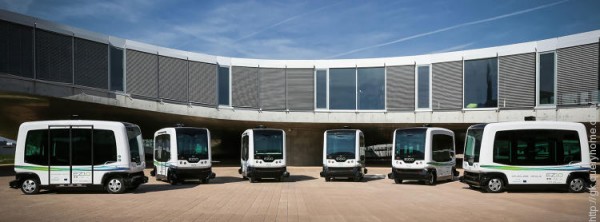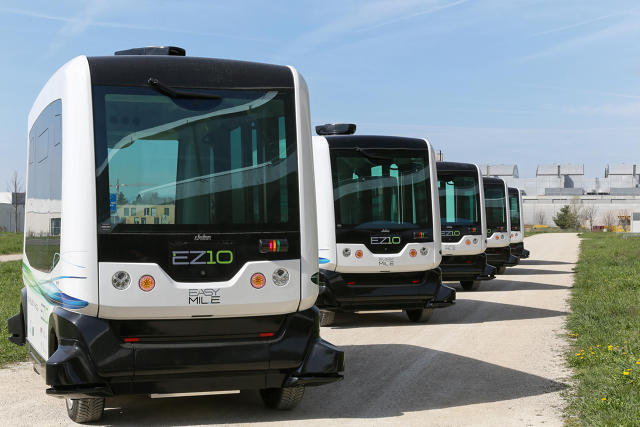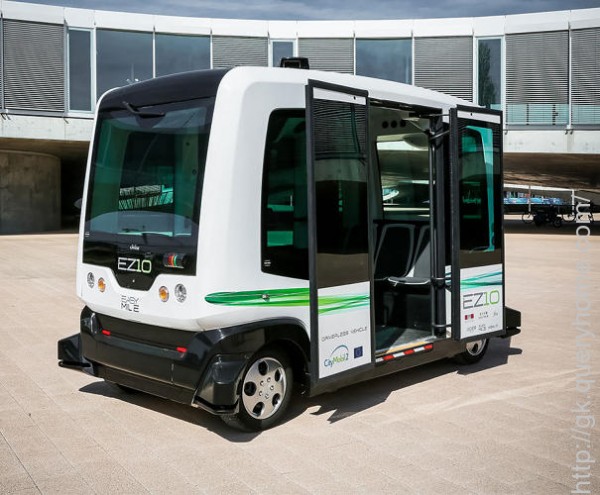Robot Buses Are Coming To America, To Pave The Way For Driverless Cars
https://www.youtube.com/watch?v=fljDBL76yDY
First, a quiet business park. Next, the world.

Self-driving buses are coming to America. The Bishop Ranch business park in San Ramon, California will be the first place in the U.S. to use French robo-buses to ferry passengers around.
Perhaps the best place for autonomous vehicles to start out is in this kind of training ground, although given the safety record of Google’s self-driving cars, the training might be for us humans in getting used to them. It’s hard to argue that preset routes and low speeds aren’t ideal for an introduction to driverless vehicles, and that’s just what the Easymile company specializes in.

The EZ10 is a driverless bus designed for short hops. It has been deployed in Europe—in Finland, France, and is just about to launch in Spain. The electric vehicles carry up to ten passengers, and have ramps for wheelchairs and strollers. The idea is that they carry you the "last mile" of your journey, and one of their main uses is in theme parks.

To find its way around, the EZ10 uses GPS to follow a pre-programmed route, along with laser sensors to avoid obstacles. This is a much easier job than that of Google’s autonomous cars, which need to be on the lookout for vehicles, pedestrians, and all kinds of surprise hazards as they hurtle along at highway speeds.

Randell Iwasaki, executive director of CCTA, a company that operates the GoMentum Station testing ground for driverless vehicles, says this tech will help travelers get to transit stations, business districts and other local amenities "without the hassle of driving and parking."
This kind of short-range, semi-smart vehicle might be the ideal wedge to drive into our driver-centric transport system. Who knows? One day we may look at human-piloted vehicles the same way that U.S. drivers look at cars with manual transmission—something for enthusiasts.
http://bit.ly/Robot-Buses-America-vs-Driverless-Cars
https://www.youtube.com/watch?v=e67j51iC_8c
